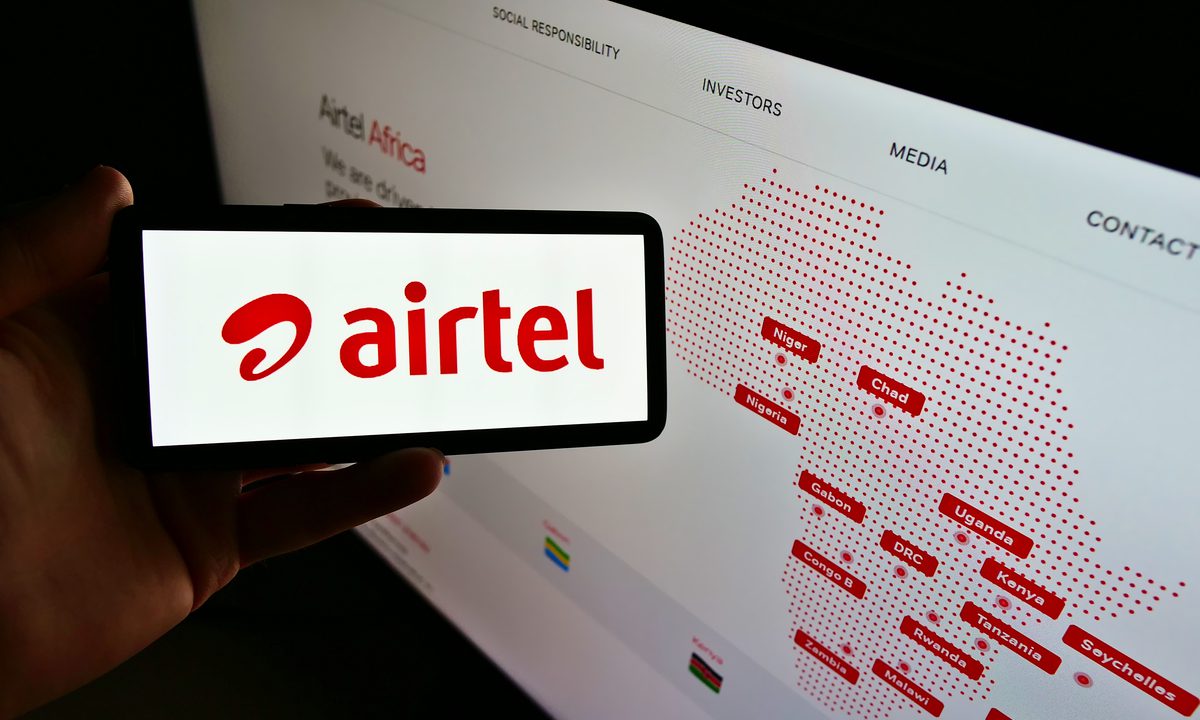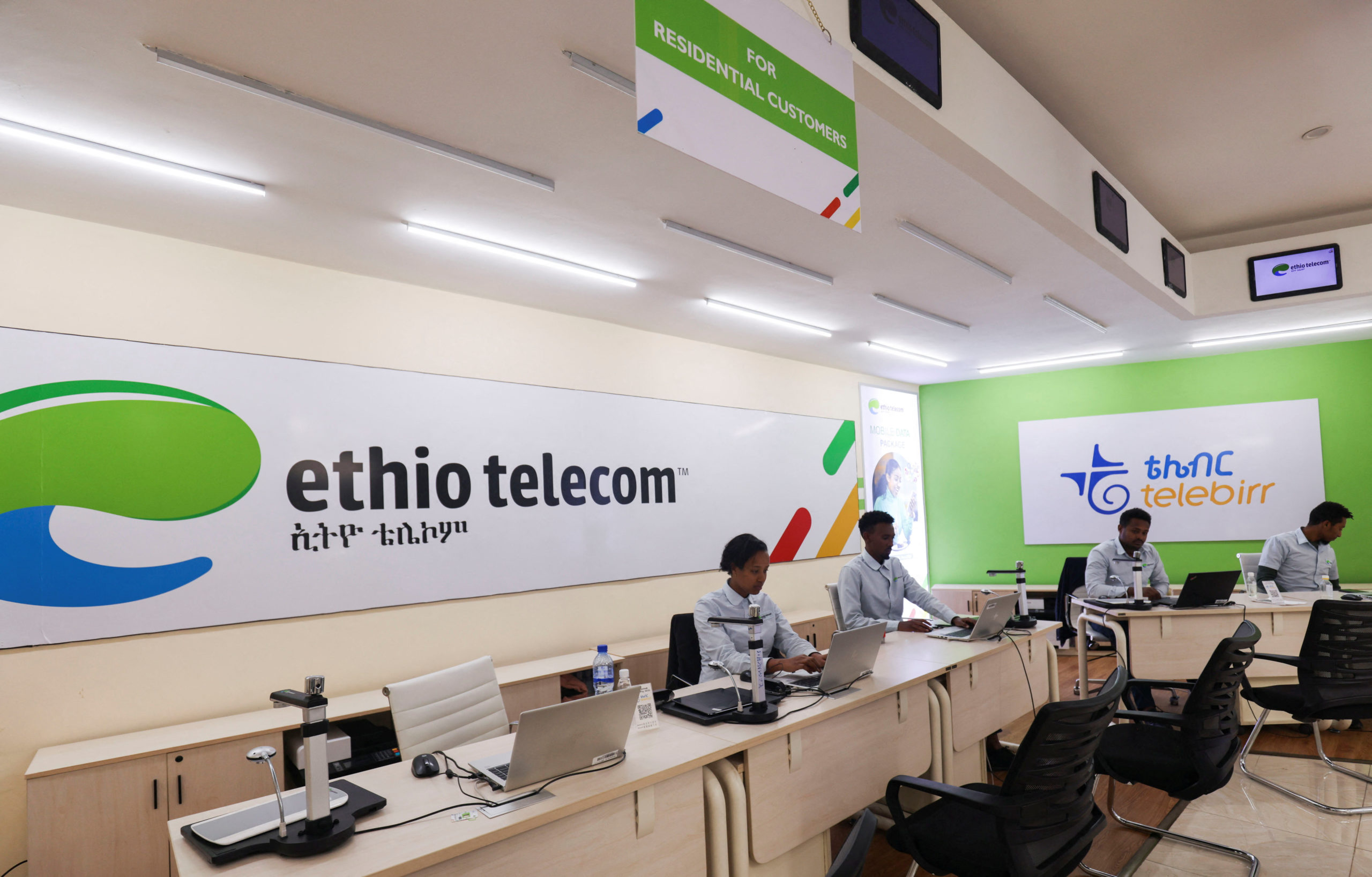

TGIF. 
We’ve got news for you! Kate Kallot—TIME 100 Most Influential People in AI, founder of Amini, and former NVIDIA executive—and Jade Abbott, CTO of Lelapa AI and co-founder of Masakhane, will be speaking at Moonshot this October!
Join two leading women shaping Africa’s AI future as they unpack the endless opportunities surrounding it. Register now! We’ll see you there.
Let’s get into today’s dispatch.

Companies
Airtel Africa grew profit after tax by 403% on strong CFA performance and stable naira

Yesterday, Airtel Africa, one of the continent’s largest telecom players with business in 14 countries, released its financial results for the three months ended June 30, 2025.
Airtel saw green in every key metric.
- Profit after tax increased fivefold to $156 million from $31 million a year ago.
- Revenue increased 24.9% in constant currency.
- Earnings before interest, tax, depreciation, and amortisation (EBITDA) climbed 30% to $679 million, with margin expanding to 48%.
- Operating free cash flow was up 48% to $558 millionAirtel attributed its strong performance.
The top-line growth was powered by a 38% surge in data revenue and a 30% jump in mobile money. Nigeria, its largest market, grew revenue by 49% in constant currency thanks to higher data usage, tariff hikes (in Nigeria), and rising smartphone adoption. Though that same revenue growth reduces to 30% after currency conversion.
Francophone Africa also contributed meaningfully to Airtel’s revenue. Revenue there rose nearly 18% in reported terms, buoyed by a stronger CFA Franc and 42% growth in data revenue. EBITDA in the region grew 25%.
Airtel attributed its performance to steady demand, cost efficiency, and debt localisation. 95% of its operating company (OpCo) debt is now in local currency, up from 86% last year.
Zoom out: With smartphone penetration still under 46% and mobile money adoption growing fast, Airtel says there’s plenty of room to do more. Despite its positive result—its strongest in recent times—Airtel’s performance has not elicited any reaction from retail investors. As of close of market on Thursday, investors only bought 25 shares of the telecom giant, even lower than the 200 from the previous trading day. The stock’s high price and illiquidity remains a major blocker for investor activity.
Paying 2% or more on every transaction adds up fast.

For businesses in e-commerce, logistics, travel, fintech, and more, every naira counts. Fincra helps you save more with 1% NGN fees capped at ₦300. Ideal for high-value or high-volume transactions. Get started for free with just your email address!
Cryptocurrency
Ghana makes U-turn, moves to licence crypto firms from September 2025

Ghana is finally moving to regulate crypto.
For years, crypto firms operated in a legal grey zone, not banned, not approved, just tolerated, but now the Bank of Ghana plans to send a licensing framework to parliament by September 2025.
State of play: That era of crypto’s legal limbo began with warning public notices in 2018 and 2022, where the central bank instructed commercial banks and licensed financial institutions to steer clear of crypto-related transactions. Still, crypto thrived in the shadows, unregulated, and running on informal platforms and peer-to-peer (P2P) channels. Between July 2023 and June 2024, Ghanaians moved $3 billion worth of crypto.
Like Nigeria and South Africa, Ghana has accepted a basic truth that crypto isn’t going anywhere, and ignoring it won’t make it disappear. Now, the central bank wants to license local platforms and bring activity into the light.
What will this new law do? The crypto law will track money flows, regulate digital assets used by millions, boost cross-border trade, attract strategic investment and improve financial data.
Ghana bets that this new regulation will convince users to switch from untraceable P2P channels to regulated players, making it easier for the country to monitor transactions and harder for illicit money to move undetected. This move also pressures major global platforms like Binance, which powers most of Africa’s P2P trading, to either localise or leave.
Zoom out: Across the continent, countries are exploring how to regulate the crypto space. Ghana has joined the ranks of Nigeria, South Africa, Kenya, Seychelles, Mauritius, and the Central African Republic (CAR) to regulate cryptocurrency transactions in Africa. The Bank of Ghana’s decision to regulate cryptocurrency transactions shows a clear shift in its policy stance. While regulation alone will not eliminate the bank’s perceived risks of the digital asset, it introduces a foundation for control.
Paga Engine powers the boldest ideas in Africa

“Across various use cases and industries, Paga Engine provides reliable rails for your business needs to run smoothly and grow sustainably.” – Tayo Oviosu. Read the full article.
Cryptocurrency
Luno’s tokenised stocks to let South Africans invest in Apple, others

In more crypto news, Luno is bringing tokenised stocks and exchange-traded funds (ETFs) to South Africa in August 2025.
This move gives South Africans 24/7 access to global equities like Apple, Alphabet, NVIDIA, and the S&P 500, using South African rands and without waiting for Wall Street to open.
If you don’t know what tokenised stocks are, they are a blockchain-based representation of real shares, held in regulated custody by Luno’s integration with global partners, like Kraken’s xStocks and Backed Finance. What makes these stocks different is that they are available in rand, fractional, and instantly tradable. South Africans can invest from as little as $1.14 in globally valuable companies.
Buying a tokenised stock does not give users shareholder rights. Investors do not have the right to vote and participate in annual general meetings (AGMs). This tradeoff might be worth it for everyday investors who get to buy and sell portions of large companies through blockchain technology.
For South Africa, Luno’s launch solves a long-standing headache of slow and expensive global investing, wrapped in red tape and legal complexity. Now, Luno users can buy, sell, and hold stocks like they would crypto.
Zoom out: Luno competes with platforms like VALR, OVEX, Binance, AltcoinTrader, and wealthtech apps like EasyEquities and Satrix that focus mainly on traditional stocks and ETFs. Still, Luno is carving out a middle lane, bridging the ease of crypto with the world of stocks, and hoping that it will win over the everyday investors.
Psss  Here’s Paystack’s developer contributor of the month!
Here’s Paystack’s developer contributor of the month!

Software Engineer Andrew Glago built a Paystack plugin for Medusa.js, making it easier for African businesses to accept payments on custom online stores. Read the full story →
Companies
Ethio Telecom pretax profits soar by 80%

Ethio Telecom, Ethiopia’s state-owned telecom giant, disclosed 80% higher annual profit for the year ended in June on Thursday. This jump saw a profit increase to about 76 billion birr ($553 million).
Why does it matter? With a market share of 95%, the profit surge underscores Ethio Telecom’s dominant position in a sector which has recently started opening up to new competition. In May 2022, Safaricom became the first private telecom operator to enter the Ethiopian market, breaking the decades-long monopoly held by state-owned Ethio Telecom. However, the Kenyan telecoms operator has reported significant losses for the past two years.
ICYMI: Ethio Telecom recently completed a partial IPO in April 2025, selling only 10.7% of offered shares to local investors, raising 3.2 billion birr ($24.5 million), falling short of its initial $240 million goal. This was primarily due to the shares being offered only to local citizens, with a limit of 1 million birr ($7.31k) per investor.
Ethio Telecom’s subscriber base grew by 6.3% to 83.2 million users. Telebirr, the telco’s mobile money service, also saw an increase in subscribers by 15.3% (now at 54.8 million users).
The big picture: Despite the positive news from Ethio Telecom, the planned telecom sector reforms in the country remain a work in progress. The underwhelming IPO in April highlights limited investor confidence under restrictive terms. Ethio Telecom still plans to list on the Ethiopia Securities Exchange as well, after months of delays. The company’s second attempt.
TechCabal Insights State of Tech in Africa H1 2025 Report is Finally Out

In H1 2025, $1.42 billion was raised in the African tech ecosystem, but the bigger shift happened in how companies are choosing to grow. Strategic partnerships and M&A deals hit record highs as startups moved beyond traditional fundraising to scale through collaboration. Read the full report here:
CRYPTO TRACKER
The World Wide Web3
Source:

|
Coin Name |
Current Value |
Day |
Month |
|---|---|---|---|
| $115,616 |
– 1.83% |
+ 8.87% |
|
| $3,630 |
+ 1.17% |
+ 49.37% |
|
| $0.0341 |
+ 115.06% |
+ 148.59% |
|
| $178.77 |
– 3.61% |
+ 23.04% |
* Data as of 06.45 AM WAT, July 25, 2025.
Unlock the secrets to financial freedom at the Naira Life Conference by Zikoko

The Naira Life Conference will bring together finance experts, industry leaders, creators, and entrepreneurs who will share their own journeys and offer actionable strategies to make your financial dreams a reality. Think: bold conversations, immersive workshops, and content tracks that hand you a playbook for building real wealth. It’s happening on August 8 at the Jewel Aeida, Lekki. Get tickets here to secure a spot.
Opportunities
- INSEAD and Harvard’s Tech for All Lab are launching an 8-week virtual sprint for early-stage founders building AI-powered startups. The organisers are pushing for strong African representation, with up to 50 percent of the cohort reserved if enough quality applications come in. The programme is free, fully online, and offers over $100,000 in seed prizes, global mentorship, and demo day exposure in San Francisco, Abu Dhabi, and Singapore. Applications close July 30.

Written by: Emmanuel Nwosu, Opeyemi Kareem, and Ifeoluwa Aigbiniode
Edited by: Faith Omoniyi
Want more of TechCabal?
Sign up for our insightful newsletters on the business and economy of tech in Africa.
- The Next Wave: futuristic analysis of the business of tech in Africa.
- TC Scoops: breaking news from TechCabal
- TNW: Francophone Africa: insider insights and analysis of Francophone’s tech ecosystem
P:S If you’re often missing TC Daily in your inbox, check your Promotions folder and move any edition of TC Daily from “Promotions” to your “Main” or “Primary” folder and TC Daily will always come to you.

Written by: Ifeoluwa Aigbiniode, Opeyemi Kareem, and Emmanuel Nwosu
Edited by: Faith Omoniyi
Want more of TechCabal?
Sign up for our insightful newsletters on the business and economy of tech in Africa.
- The Next Wave: futuristic analysis of the business of tech in Africa.
- TC Scoops: breaking news from TechCabal
- TNW: Francophone Africa: insider insights and analysis of Francophone’s tech ecosystem
P:S If you’re often missing TC Daily in your inbox, check your Promotions folder and move any edition of TC Daily from “Promotions” to your “Main” or “Primary” folder and TC Daily will always come to you.

from TechCabal https://ift.tt/plgEcxb
via IFTTT




Write your views on this post and share it. ConversionConversion EmoticonEmoticon